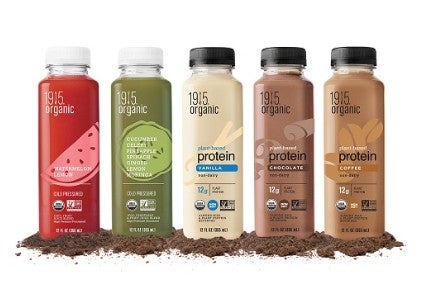
After months of speculation and pressure from an activist investor to realign its business, Campbell Soup Co. finally revealed today (30 August) the results of its strategic review – it plans to sell off its international and fresh foods operations to focus on the company’s key North American market.
With the divestitures, Campbell said it will hone in on its snacks, meals and beverage segments within North America and has today adjusted its “long-term” sales and profit targets accordingly. After reporting a US$475m third-quarter loss in May, along with the departure of chief executive Denise Morrison, the New York-listed company said on Thursday that annual profits before interest and taxes slumped to $469m from $1.4bn the previous year.

Discover B2B Marketing That Performs
Combine business intelligence and editorial excellence to reach engaged professionals across 36 leading media platforms.
In revealing the outcome of its strategic review, Campbell confirmed the anticipated disposal of its Arnott’s biscuits business, along with that of its US fresh food segment – Campbell Fresh or C-Fresh – which includes Bolthouse Farms, and Kelsen Group, the Denmark-based baked snacks company. And interim president and CEO Keith McLoughlin hinted today that more disposals could be on the cards.
Proceeds will be used to “significantly” reduce debts, the New Jersey-based firm said in a statement. The disposals have prompted Campbell to increase its cost-savings target by $150m to $945m by the fiscal year 2022.
Campbell announced in May it was reviewing its business operations, with stakeholder and activist investor Daniel Loeb of hedge fund Third Point reportedly putting pressure on the firm recently to divest part of its empire. Lobe was said to have joined forces with George Strawbridge, a Campbell family member and board director, to try and force the move. The two investors own 8.42% of Campbell’s shares, while other family members have a stake of about 41%.
Interim CEO McLoughlin commented today: “Campbell’s board of directors considered a full slate of strategic options, including optimising the portfolio, divesting businesses, splitting the company, and pursuing a sale. The board concluded that, at this time, the best path forward to drive shareholder value is to focus the company on two core businesses in the North American market with a proven consumer packaged goods business model. Importantly, the board remains open and committed to evaluating all strategic options to enhance value in the future.”

US Tariffs are shifting - will you react or anticipate?
Don’t let policy changes catch you off guard. Stay proactive with real-time data and expert analysis.
By GlobalDataHe continued: “Our plan will build upon our existing strengths. Our new leadership team will concentrate on significantly improving operational discipline through a rigorous management model that aligns the enterprise from strategy through execution. We are moving forward with a sense of urgency to complete these changes in fiscal 2019, setting the foundation for sustainable, profitable growth in fiscal 2020 and beyond.
“We will pursue further actions in addition to those announced today to optimise our portfolio and performance.”
Campbell added that it has employed Goldman Sachs and Centerview Partners to undertake the sale of its international and fresh foods arms, along with its manufacturing operations in Indonesia and Malaysia, and its businesses in Hong Kong and Japan.
Campbell Fresh includes Bolthouse Farms, Garden Fresh Gourmet and the company’s refrigerated soup business, which generated combined net sales of around $2.1bn in fiscal year 2018.
To achieve the anticipated cost savings, Campbell said it will be looking at “streamlining its organisational structure, expanding its zero-based budgeting efforts and continuing to optimise its manufacturing network”.
After adjusting what it said are long-term targets to take into account the divestitures, indicated as being in 2019 and beyond, Campbell is predicting organic sales growth of 1-2%. Adjusted EBIT is seen at 4-6% and adjusted EPS at 7% to 9%. In addition, the company is targeting a net debt to adjusted EBITDA ratio of 3x by 2021.
For the year ended 29 July, Campbell reported a 10% increase in sales to $8.69bn, including an “11-point benefit” from its acquisitions of US-based snacks firm Snyder’s-Lance and US natural produce business Pacific Foods, both purchased in 2017.
Organic sales declined 2% due to decreases in its Americas Simple Meals and Beverages business, offset by gains in the global biscuits and snacks segments. It posted full-year earnings per share of $0.86 and adjusted EPS of $2.87.



